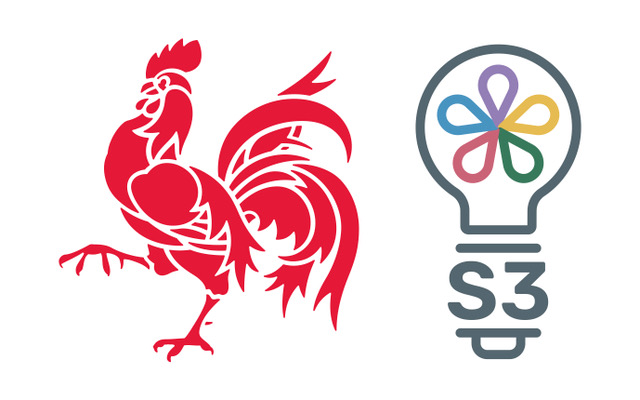First Workshop on Real-Time Autonomous Systems Security
July 9, 2024, Lille, France
Held in conjunction with ECRTS 2024
About
Autonomous systems such as ground and aerial vehicles, cognitive robots, and mechanical plants are used in many applications (transportation, surveillance, control systems, precision agriculture, and healthcare) and ease our everyday lives. Such systems also have “real-time” (viz., stringent timing and safety-critical) requirements. Due to their growing usage and high value, adversarial threats to those critical systems are increasing. Security, resiliency, and privacy problems in modern real-time autonomous systems pose direct threats to the users/operators, the system itself, the other entities (including humans) around it, and the environment. Hence, there is a need for a concerted effort to understand the threats and devise techniques to make critical systems resilient against cyber-attacks.
Considering the urgency and research needs, the First Workshop on Real-Time Autonomous Systems Security (RT-AutoSec) provides a platform for researchers to present original research papers addressing these challenges. RT-AutoSe aims to bring together experts from academia and industry to discuss and address the security, resiliency, and privacy challenges of modern, connected autonomous systems. The expected impacts include identifying and eliminating adversarial threats in autonomous systems’ design and implementation space.
Proceeding and Program
NOTE: This year, the RT-AutoSec, OSPERT, and RT-Cloud workshops will run with a joint schedule. At the end of the day, there will be a panel that will combine presenters from three events.
The full RT-AutoSec ’24 proceeding is available for download.
Program:
| 8:00 – 8:45 | Registration |
| 9:00 – 9:10 | OSPERT and RT-AutoSec Opening Remarks |
| 9:10 – 10:00 | Session 1: RT-AutoSec Industry Keynote Safety & Security in Perfect Harmony through Life(cycles) Martin Ring |
| 10:00 – 10:30 | Coffee Break |
| 10:30 – 11:35 | Session 2: RT-AutoSec and OSPERT Technical Session 1- [RT-AutoSec] Assured Micropatching of Race Conditions in Legacy Real-time Embedded Systems R. Chatterjee, H. Simpa, B. Karel, R. Baratto, M. Gordon and J. Daily 2- [OSPERT] A Preliminary Assessment of the real-time capabilities of Real-Time Linux on Raspberry Pi 5 W. Dewit, A. Paolillo, J. Goossens 3- [OSPERT] Towards Enabling Synchronous Releases for Periodic Tasks in RTEMS T. Seidl, M. Guenzel, J.-J. Chen, and K.-H. Chen |
| 11:35 – 12:15 | Session 3: OSPERT and RT-AutoSec Keynote Safety and Security on a Journey to Outer Space: Navigating the Complex Relationship Zain Hammadeh |
| 12:15 – 13:30 | Lunch |
| 13:30 – 15:00 | RT-Cloud Opening Remarks Session 3: RT-Cloud Technical Session 1- [RT-Cloud] Dynamic Offloading of Control Algorithms to the Edge using 5G and WebAssembly A. A. Bayati, K.-E. Arzen 2- [RT-Cloud] Safety-Critical Edge Robotics Architecture with Bounded End-to-End Latency G. Gala, T. Unte, L. Maia, J. Kuhbacher, I. Kadusale, M. I. Alkoudsi, G. Fohler, and S. Altmeyer 3- [RT-Cloud] Integrating Containers and Partitioning Hypervisors for Dependable Real-time Industrial Clouds M. Barletta, F. Boccola, M. Cinque, L. D. Simone, R. D. Corte and D. Ottaviano 4- [RT-Cloud] Orchestration Done Upside Down: Self-aware Applications for Substation Automation C. Gottel, D. Kozhaya, E. Fregnan, P. Sommer, S. Schonborn |
| 15:00 – 15:30 | Coffee Break |
| 15:30 – 16:20 | Session 4: RT-Cloud Keynote Safety-critical cloud applications George Violettas |
| 16:20 – 17:00 | Session 5: Joint Panel OSPERT + RT-AutoSec + RT-Cloud Panel |
| 17:00 – 18:00 | ECRTS First-timer Reception |
Scope and Topics of Interest
We welcome papers describing applications, methodologies, and case studies contributing to the state-of-the-art design of secure, time-sensitive autonomous systems. We require papers to consider some timing requirements related to the security of autonomous systems. The timing requirements of interest are broadly defined and may include soft real-time, QoS, and probabilistic guarantees.
Specific areas of interest include (but not limited to):
- Mathematical foundations for secure autonomous systems
- Control/game-theoretic approaches
- High-assurance security architectures
- Security, privacy, and resilience metrics
- Economics of autonomous systems security and privacy
- Hardware-assisted security
- Autonomous systems testbed for security analysis
- Security/privacy solutions for learning-enabled/AI-driven autonomous systems
- Trusted computing (TEEs) for autonomous systems
- Software-defined designs for improving security/resiliency
- Side-channel analysis
- Ethics and usability aspects related to time-criticality
Important Dates
May 9, 2024May 16th, 2024 (extended!)
Submission Deadline- June 6, 2024
Acceptance Notification - July 9, 2024
Workshop - July 9-12, 2024
ECRTS Conference
Submission Instruction
The Workshop accepts two types of submissions: (1) regular papers that are up to 6 pages long and (2) short position papers or work-in-progress (WIP) papers that are up to 4 pages long. Both papers should be formatted in double-column IEEE style, including references and appendices. The IEEE template is available here. Submissions must be in Portable Document Format (.pdf).
Submissions website: https://easychair.org/conferences/?conf=rtautosec2024
If accepted, at least one author must attend the conference for the presentation. The workshop will publish and archive the proceedings. However, authors retain the right to publish their work elsewhere and may opt not to include their paper in the workshop proceedings. In such cases, authors may (optionally) provide an extended abstract.
Workshop Chairs
Monowar Hasan
Washington State University
Email: monowar.hasan@wsu.edu
Mohammad Hamad
Technical University of Munich
Email: mohammad.hamad@tum.de
Technical Program Committee
- Gedare Bloom (University of Colorado Colorado Springs, USA)
- Zain A. H. Hammadeh (German Aerospace Center — DLR, Germany)
- Mehdi Hosseinzadeh (Washington State University, USA)
- Apostolos Fournaris (Research Center ATHENA, Greece)
- Mert D. Pesé (Clemson University, USA)
- Marc-Oliver Pahl (IMT Atlantique, France)
- Andrea Saracino (Scuola Superiore Universitaria Sant’Anna, Italy)
- Man-Ki Yoon (NC State University, USA)
The workshop is supported by The EU Project CyberSecDome



